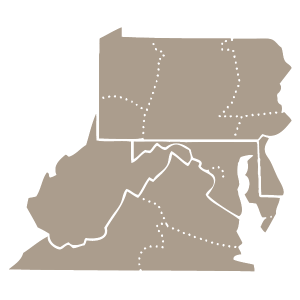 What is a Province? Many fellow Episcopalians are unaware of the Provincial system. The Episcopal Church’s 110 dioceses spread across 17 countries, are divided into 9 Provinces. These Provinces serve as regional entities that seek to further the mission of the Episcopal Church by coordinating interdependent ministries and pooling intellectual and spiritual resources. By working together with our neighboring dioceses, we can reduce our need to “reinvent the wheel” each time we embark on a project. An example of a Coordinated Ministry is Anti-Racism Awareness and Training.
What is a Province? Many fellow Episcopalians are unaware of the Provincial system. The Episcopal Church’s 110 dioceses spread across 17 countries, are divided into 9 Provinces. These Provinces serve as regional entities that seek to further the mission of the Episcopal Church by coordinating interdependent ministries and pooling intellectual and spiritual resources. By working together with our neighboring dioceses, we can reduce our need to “reinvent the wheel” each time we embark on a project. An example of a Coordinated Ministry is Anti-Racism Awareness and Training.
Through the efforts of the Provincial network coordinator, parishes throughout the Province can learn about projects undertaken by others, get help with a project, or, in some cases, find grant support for a project.
Each year on the first Monday of May, deputies from the 13 Episcopal dioceses in Delaware, Maryland, Pennsylvania, Virginia, Washington D.C. and West Virginia, representing 1187 parishes, gather in Martinsburg, West Virginia, to hold the Annual Synod of Province III of the Episcopal Church.
Within a framework of fellowship, prayer, and exchange of ideas, the Province, through the Annual Synod and our Executive Council, endeavors to develop strategies for the sharing of programs, resources and ministries. During General Convention years, the Synod also helps prepare deputies for Convention.
This year our diocese sent three deputies to Synod – (pictured, L to R) the Rev. Canon Eric McIntosh, St. James, Penn Hills; Ms. Florence Atwood, Calvary, East Liberty; and Steven Stagnitta, St. Andrew’s, Highland Park.
Following a Morning Prayer service, we participated in discussions on strategic planning, the provincial budget, and changes to the provincial ordinances as well as heard reports from the coordinators of various groups including the Episcopal Church Women, Campus Ministries, Christian Formation and Youth, United Thank Offering, and Environmental Ministries filled the majority of the day. Other presentations included an update on Ecumenical Affairs, the status of the reunification of the Dioceses of Bethlehem and Central Pennsylvania, a report on the Diocese of Maryland’s Reparations Project, and a review of the Harriet Tubman grants program.
If you are interested in knowing more about the mission of Province III, or wish to become more involved in the wider Episcopal community, please visit the website at: https://www.province3.org.
–Florence Atwood
